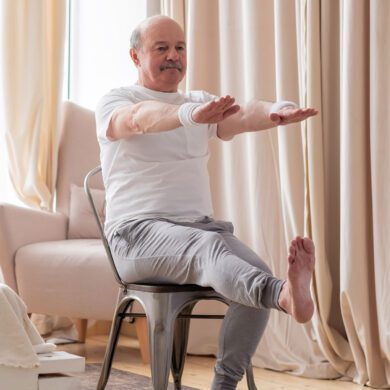Have You Been Masking Your Hearing Loss?

With the onset of 2020’s pandemic, masks became a staple of our daily lives and continue to be one of the key components to stop the spread of COVID-19. They can be a fun fashion accessory, an excuse to learn how to sew, and they may have influenced many who never realized they’ve had underlying hearing loss.
Can your mask help you recognize the onset of hearing loss?
Much of our regular communication relies upon our visual senses. Facial expressions, lip reading, and other visual cues let everyone better understand what’s being said. Without view of those cues, we rely solely upon our hearing. And that can help many recognize they have hearing loss they never identified.
According to the AP News, “hearing specialists across the U.S. say they have seen an uptick in visits from people… who only realized how much they relied on lip reading and facial expressions when people started wearing masks that cover the nose and mouth.”
Perhaps you’ve been struggling with your hearing for some time and yet you’ve adapted by employing more of your other senses. While that’s a common response, this situation draws light that it’s likely time to have your hearing checked. A simple visit to a hearing specialist will help you determine if your hearing struggles are due to the masks or possibly caused by other factors. Some benefit from discovering that if they do have hearing loss, they can incorporate hearing aids and technology to boost the sounds around them.
Is the mask a muffler?
The mask’s ability to slow the spread of germs from person to person is a win for everyone. Wearing one while speaking is akin to a child wearing a Halloween mask and attempting to speak to an adult. As the listener, we understand “trick or treat” because we anticipate it, but when the child asks for the little box of Milk Duds rather than the tiny Clark bar, we say, “Huh? What was that sweetie?” The child lifts the mask to be clearly heard. The need for a mask can affect our ability to understand what’s being said by others but it’s not a problem. All we need to do is make a few minor adjustments.
Helpful adjustments to the mask
Since the masks that people wear come in all shapes and sizes, there is no single “prescription” to alleviate hearing struggles. Here are a few tips, though, that you might find useful if your hearing is impacted during daily interactions:
Try a mask that ties around your head:
If you wear a hearing aid, you might enjoy better comprehension during conversations with those wearing a mask, but you might also find that the ear loops of your mask catch on your hearing aid. Try a mask that uses ties around your head rather than ear loops.
Try being attentive:
Ask those you’re speaking with to be clear and distinct. If you don’t understand something, ask them to rephrase the statement, instead of just repeating it.
Try eliminating background noise:
As much as possible, find a quiet place to have conversations. Reducing the background noise can help concentration and comprehension when you’re struggling to hear.
Try a clear mask:
When you understand the value of visual cues during speaking, you can help others understand you when you wear a clear mask. They’ll see the words you form and might have an easier time conversing with you.

College Student Ashley Lawrence (left) poses with her mother while they both wear a mask made for the deaf and hard of hearing community. Lex18 News – April 6, 2020
Want more?
Find a full list of tips and suggestions from the Ida Institute here.
Life is a series of adjustments, but when we work together and support one another, we are remarkably adaptable to settings and situations. While we’re uncertain about the duration of the mask guidelines, we can continue to adapt how we speak and hear during this time. Most importantly, pay attention to any clues that you might be developing hearing loss (or your current hearing loss is progressing) and make an appointment for yourself or a loved one to get a checkup; you’ll be glad you did.




